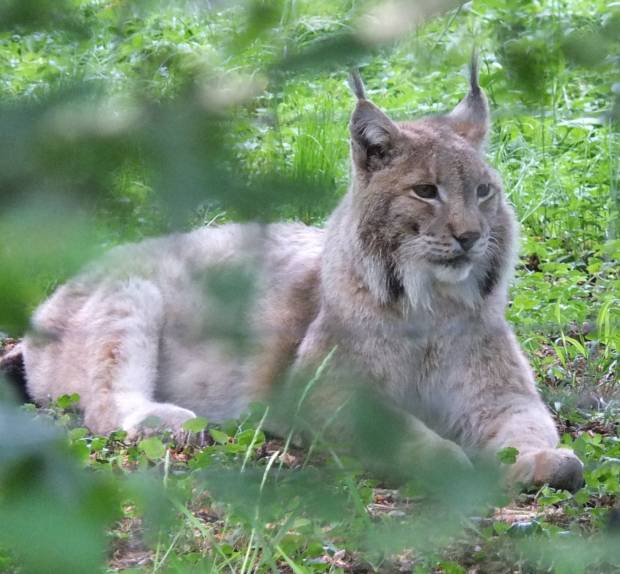Livestock and livelihoods threatened by ongoing reintroduction debate says NSA
5th May 2023
Diverse farmland habitats, the people that manage these environments, and the livestock found amongst them must be protected, not threatened. That is the message from the National Sheep Association (NSA) following further discussion to reintroduce lynx to the Scottish countryside last week.
The potential for reintroducing lynx was debated in the Scottish Parliament, after a parliamentary motion by the Scottish National Party’s (SNP) Kenneth Gibson received cross-party support to engage this discussion. The motion highlighted the case for the species’ return, and explained how lynx some believe reintroduction could make Scotland’s natural world ‘richer and stronger’ via a managed reintroduction, following appropriate assessments.
NSA Scottish Region Coordinator Grace Reid argues: “NSA Scottish Region advocates for a diverse tapestry of habitats and biodiversity across farmland. Protecting these habitats that exist, the species that are at risk right now, and the people managing them should be the priorities for the government.
“However, NSA members across the UK and notably Scotland have been at the sharp end of species reintroductions, from poor consultation processes, illegal releases, no management strategies, and no mitigation, exit or recognition of the impacts to farming businesses and livelihoods. We are increasingly concerned around the contradictions which could arise in government policy.”
As new UK wide farming policies are incentivising habitat creation and work to improve already high animal welfare standards NSA considers it short sighted to be considering the release of a species that could severely damage the biodiversity of existing habitats and severely impact animal welfare and sheep farmers' livelihoods.
Ms Reid continues: “The argument that Lynx will only feed on deer is not accepatable. There is no doubt sheep will be an easy target for predation and it is a major concern for those who farm in Scotland. Evidence has shown that some European sheep flocks continue to suffer disproportionately great losses due to lynx predation.
“Those in favour of a reintroduction argue the UK has fallen behind in terms of species diversity but there is a history of greater land use and land use change in Scotland than Europe has seen and therefore comparisons cannot be made between the UK and Europe due to the vast land scale and landscape differences.”
NSA believes it is absolutely imperative there is a clear plan in place for the responsibility of the reintroduced species, especially when it comes to maintaining the UK sheep industry, the natural environment, possible increased footfall, and subsequent consequences – traffic, litter, fencing, pathways, gates, damage to crops, fields, and livestock attack incidents that could occur if a reintroduction was to take place.





